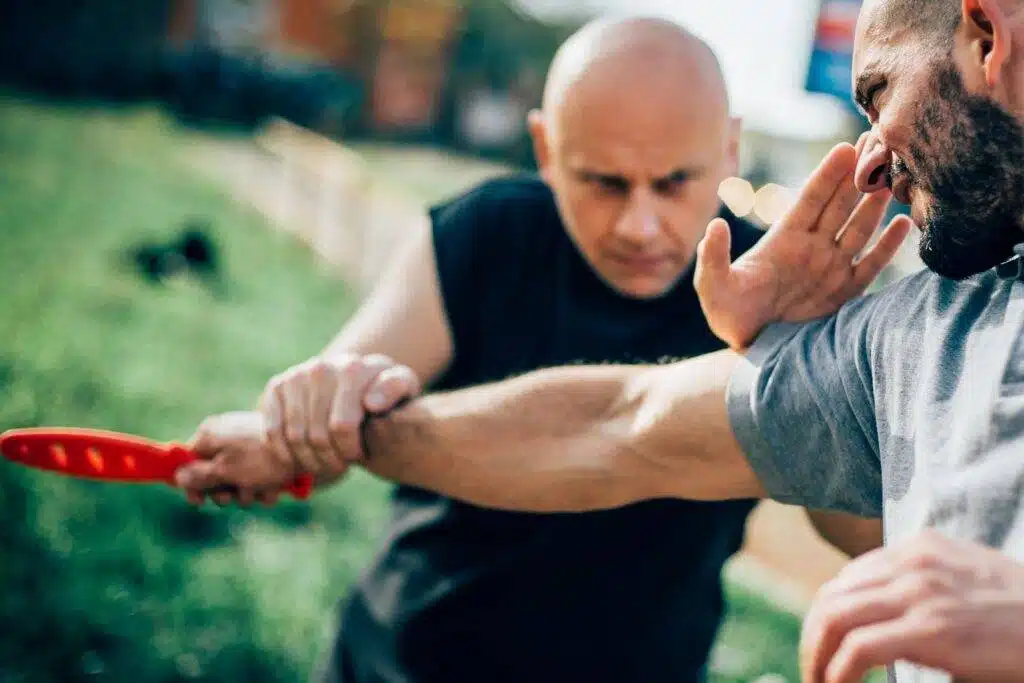Colorado Self Defense Laws: What Is the Stand Your Ground Law?
- You reasonably believe that (a) you or another individual is at immediate risk of death or severe injury and (b) a non-deadly force is inadequate to prevent this from occurring.
- You reasonably believe that (a) an aggressor is or is about to use physical force while committing a burglary and (b) a non-deadly force is inadequate to prevent this from occurring.
- You reasonably believe that (a) an aggressor is or is about to carry out a kidnapping, robbery, or sexual assault and (b) a non-deadly force is inadequate to prevent this from occurring.
- You instigate the use of force. (Exception: You withdraw from the situation and convey your intent to do so, but the other person involved continues to use or threaten illegal physical force.)
- You provoke another individual to use illegal physical force with the intent of causing death or harm to someone.
- The use of physical force results from an unsanctioned “combat by agreement” situation, such as a gang fight or rumble.
Defending Property: Colorado’s Make My Day Law vs. Stand Your Ground Law
The stand your ground premise typically applies wherever an individual has a right to be present, but what about laws surrounding the protection of one’s property or home?
In general, Colorado law does not permit the use of deadly force solely to protect property; however, there are notable exceptions. Under CRS 18-1-704.5 (also known as the “Make My Day Law” or the force-against-intruders statute), an individual can use deadly force against an intruder if ALL of the following are true:
- The intruder breaks into your residence (this can include a hotel room).
- You have reason to believe that the intruder has or intends to commit an offense inside the residence in addition to the break-in.
- You have reason to believe that the intruder has or intends to use physical force against you or another occupant on the premises.
If these three conditions hold true, you have the right to stand your ground and use force against the intruder to protect yourself and others within the dwelling. This is the case even if you could escape without anyone being harmed.
Defending Others: Does Stand Your Ground Apply When You Are Protecting Others?
Crimes of Violence vs. Stand Your Ground: What’s the Difference?
The key difference between a crime of violence and an act of self-defense in Colorado lies in the circumstances surrounding the use of force.
Crimes of Violence: This legal term is used to categorize certain offenses that involve the use or threat of force; these crimes are typically felonies and carry enhanced penalties. Offenses such as murder, robbery, sexual assault and kidnapping are often designated as crimes of violence.
Self-Defense: Self-defense allows individuals to use force to protect themselves, others, or property from imminent harm. Colorado law recognizes the right to self-defense under certain circumstances. However, the use of force must be reasonable and proportionate to the threat at hand.
The distinction between these two classifications typically comes down to the specific situation. Some key questions to determine whether an act was a crime of violence or self-defense include:
- Was there an imminent threat involved?
- Was the level of force proportionate to the perceived threat?
- Was there a reasonable belief that such force was absolutely necessary to prevent harm?
If someone faces criminal charges related to a violent act, whether it’s designated as a crime of violence or not, the circumstances surrounding the incident will be carefully examined to determine whether self-defense is a valid argument.



